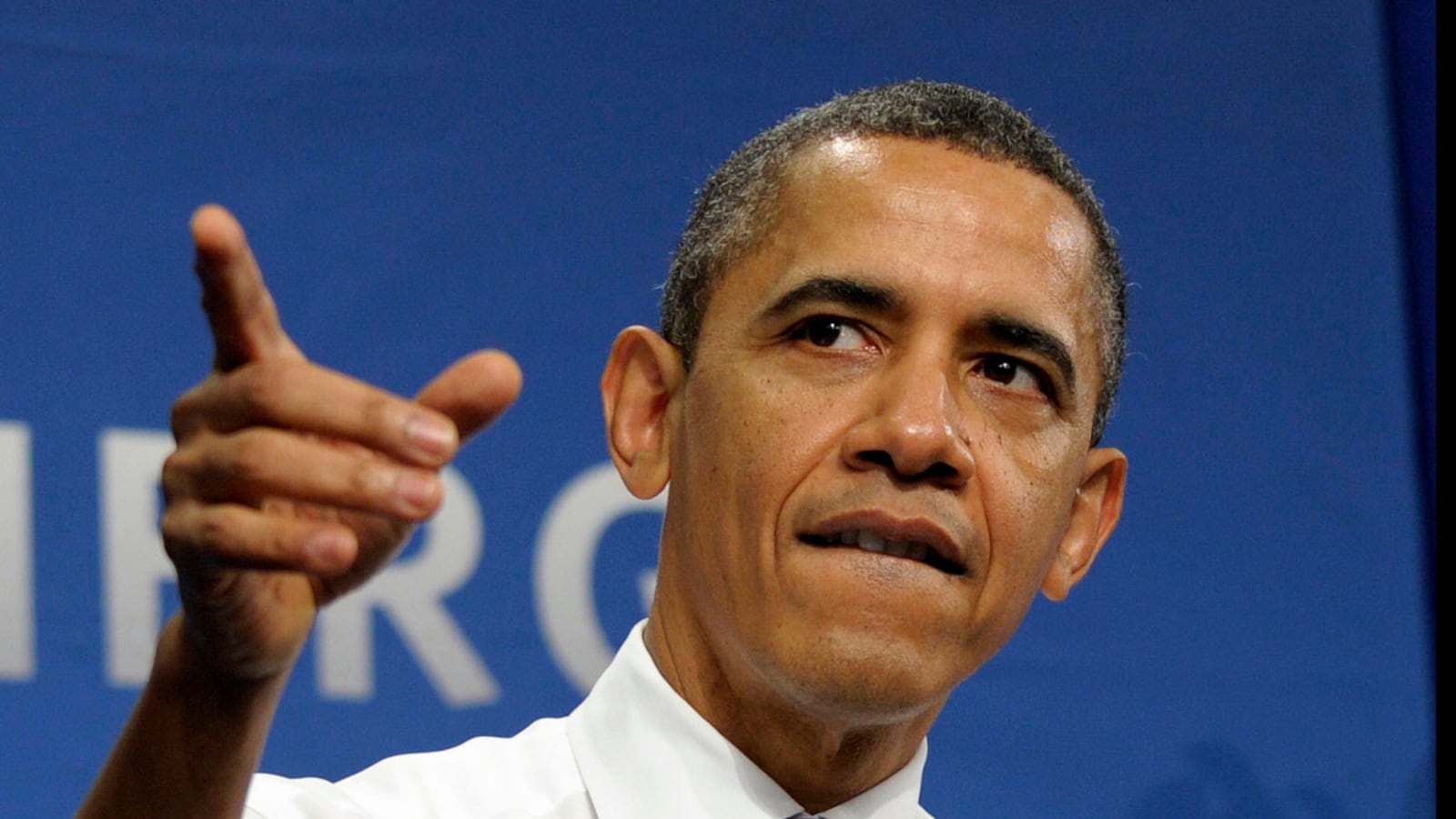Should Barack Obama win reelection this fall, he’ll almost immediately face one of the biggest issues of his second term: the looming expiration of the Bush tax cuts. George W. Bush originally passed the tax breaks in two quick bursts—slashing income taxes in 2001, and lowering taxes on investment income in 2003. Then, just before these cuts were set to expire on Jan. 1, 2011, Obama struck a deal with congressional Republicans to extend them for two more years.

To this day, the tax cuts are a highly emotional issue for partisans on both sides. Liberals regard them as a sop to the wealthy, who receive the largest share of the benefits. When Obama signed off on the extension, the left jeered him with charges of rank capitulation. Among Republicans, meanwhile, the tax cuts stand as one of the few untarnished legacies of the George W. Bush era. Without them, the conservative narrative of the Bush presidency collapses into a sorry tale of big government at home (No Child Left Behind, a Medicare prescription-drug benefit) and miscues abroad.
So how is Obama likely to handle this unwelcome inheritance?
Taken at face value, the president’s position is the same as it’s been since the 2008 campaign: he believes in preserving the Bush tax cuts for individuals making less than $200,000 per year, and for families making less than $250,000. He wants to end them for the very affluent. But while reporting my new book on the Obama economic team, I found evidence that the president’s private views may be at odds with his public statements.
In the fall of 2009, Obama’s chief congressional lobbyist, Phil Schiliro, touted a clever idea for dealing with the tax cuts: introduce a bill that would extend the middle-class cuts for two years while allowing the upper-income portions to expire. After two years, the middle-class cuts would also expire unless Congress paid for them with offsetting savings or tax increases.
Schiliro figured that, if the bill passed, the whole mess of tax cuts was likely to disappear when all was said and done, since there aren’t exactly trillions of dollars in easy-to-cut spending just lying around the federal budget, while raising other taxes was unlikely. And even if the bill didn’t pass, it would put Republicans on the defensive by shining a light on the huge budget costs of their most cherished accomplishment.
At first, Schiliro’s plan went nowhere—in truth it was as much a stunt as a serious proposal. But Schiliro had an important ally: Peter Orszag, the president’s budget director. Orszag was the administration’s most outspoken deficit hawk. He believed the only practical way to balance the budget was to repeal all the Bush tax cuts, not just the upper-income variety.
By November 2009, Orszag had become so fond of the idea that he insisted on presenting it to the president in the Oval Office. Orszag’s fellow wonks were cool to the plan, having heard him and Schiliro sing its praises repeatedly. But the administration’s chief wonk—Barack Obama—was intrigued. He asked a series of encouraging questions about how the proposal would work. According to two sources in the room, he was taken with both the political merits—that is, putting Republicans on the defensive—and the policy rationale of lopping trillions off the deficit. He gave no indication that he was troubled by the plan’s most explosive feature: that it would likely break a central campaign promise—not raising taxes on the middle class—one Republicans would surely wrap around his neck with populist glee.
It’s not entirely clear why the Schiliro plan never went further. But the sense of alarm that broke out among the noneconomists who attended the Oval Office conclave surely didn’t help. Vice President Joe Biden, for one, was so concerned about violating the 2008 tax pledge that he called one senior official right after the meeting to confess his anxieties. (A White House spokesperson confirmed the meeting but insisted that the president has never seriously considered phasing out the middle-class tax cuts.)
What is clear is that, having been tempted to end all of the Bush tax cuts in 2009, the president would only find the idea more attractive were he to win a second term. At that point, he will never again stand before the voters, at least not as a presidential candidate. There would be nothing to stop him from flouting a campaign promise, even one as sensitive as his tax pledge. Meanwhile, after four straight years of trillion-dollar deficits, the pressure to narrow the budget shortfall would be even more intense than it was during his first term.
Perhaps most important of all, killing the entire zombie army of Bush tax breaks would be far, far easier than only slaying the upper-income portions. To pull off the former, Obama literally has to do nothing—the tax breaks are slated to expire on their own. To do the latter, he would have to pass legislation extending the middle-class elements. As a practical matter, that means rounding up majorities in the House and Senate, which seems unimaginable given the likely balance of power on Capitol Hill after the election. (There is a third option, which entails striking a deal with Republicans to junk the entire tax code and rebuild it from scratch, but it’s hard to envision this happening between Election Day and Dec. 31.)
In the end, the lesson of the Schiliro plan and the Orszag meeting—to say nothing of the months Obama spent petitioning Republicans for a major deficit deal in 2011—is that the president is a true fiscal conservative. Perhaps even a severe one, to paraphrase his likely opponent. For such a breed of politician, the chance to let the Bush tax cuts lapse may simply be too tempting to pass up.





